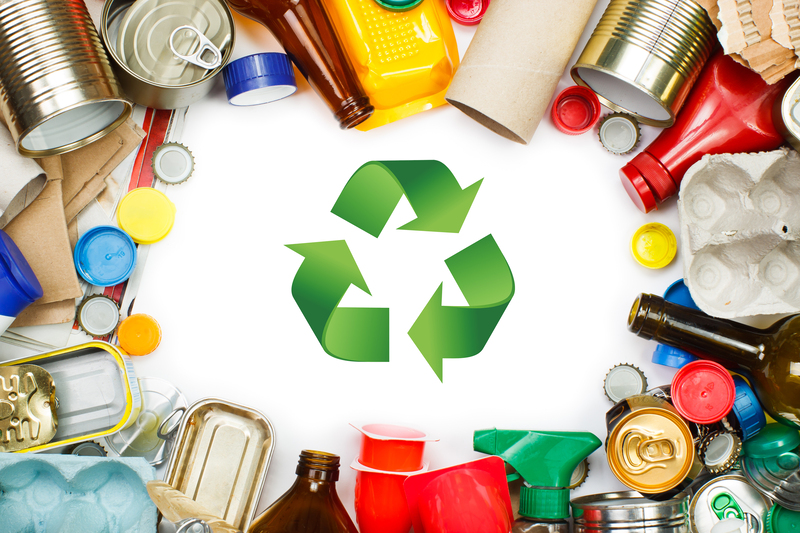Rethinking Restaurant Waste with Creative Food Recycling
In an era where sustainability is more than just a buzzword, food recycling represents a pivotal step forward. With a renewed focus on reducing waste and making the most of resources, restaurants worldwide are now exploring innovative methods to recycle food waste. This transformative approach not only preserves the environment but also offers potential cost savings and new revenue streams.
Understanding the Importance of Food Recycling
Every year, millions of tons of food are wasted. In the hospitality industry, this problem is particularly pronounced. Restaurants are responsible for a significant share of food waste, making the need for creative solutions essential. By implementing effective recycling strategies, restaurants can play a key role in addressing one of the 21st century's pressing challenges.
The Environmental Impact of Food Waste
The environmental repercussions of food waste are extensive. Decomposing food in landfills generates methane, a potent greenhouse gas which significantly contributes to climate change. Reducing food waste at the source-particularly in restaurants-can dramatically decrease these emissions.

Creative Techniques for Food Recycling in Restaurants
Rethinking restaurant waste involves the adoption of creative and practical solutions that not only eliminate waste but transform it into beneficial products. Here are some innovative strategies:
1. Composting
- Composting is a widely used method where organic waste is converted into nutrient-rich soil. This can be used in gardens or sold to local farms.
- Restaurants can implement on-site composting systems to reduce waste disposal costs.
2. Repurposing Leftovers
- Leftovers can be creatively repurposed into new menu items. For instance, stale bread can become croutons or breadcrumbs.
- Chefs are encouraged to design menu items that utilize excess ingredients, reducing waste and innovating cuisine.
3. Food Donation Programs
- Restaurants can partner with local charities to donate surplus food before it spoils.
- This not only helps those in need but also minimizes waste and supports community welfare.
The Benefits of Implementing Food Recycling
The benefits of food recycling extend far beyond environmental conservation. Here's how:
Economic Advantages
- Cost Savings: By reducing waste, restaurants can lower disposal costs significantly.
- New Revenue Streams: Selling composted materials or creating new menu items from recyclables can introduce new revenue sources.
Social and Environmental Impact
- Improved Community Relationships: Food donation programs support low-income families, enhancing the restaurant's reputation within the community.
- Climate Change Mitigation: By reducing methane emissions, restaurants contribute to global efforts against climate change.
Implementing a Successful Food Recycling Program
To ensure the success of a food recycling program, restaurants need to consider several key steps:
1. Staff Training
- Staff should be educated about the importance of recycling and trained in proper waste segregation techniques.
- Regular workshops and training sessions can reinforce the significance of food recycling.
2. Collaboration with Experts
- Partner with specialists in recycling to develop customized programs that meet specific needs.
- Experts can provide insights and best practices to maximize recycling efficiency.
3. Monitoring and Evaluation
- Regularly assess the recycling program to identify areas of improvement.
- Track key performance indicators to measure success and adapt strategies as necessary.

Challenges and Solutions
Despite the clear advantages, implementing a comprehensive food recycling program in restaurants is not without its challenges. Here are some common obstacles and their solutions:
Lack of Awareness
- Challenge: Many restaurant owners may not fully understand the benefits of food recycling.
- Solution: Awareness campaigns and educational programs can help rectify this issue.
Initial Costs
- Challenge: The initial setup of recycling systems may require capital investment.
- Solution: Seek grants and subsidies for sustainable initiatives to offset initial expenses.
Future Trends in Restaurant Waste Management
As technology evolves, new trends are emerging in food recycling. Some of these innovations include:
Smart Waste Technology
- Advanced sensors and AI can optimize waste management processes, making recycling more efficient.
- Smart bins that segregate waste automatically can be integrated into restaurant systems.
Innovative Materials
- Development of eco-friendly packaging materials can further reduce waste generated by restaurants.
- Biodegradable alternatives to traditional packaging are gaining popularity in the hospitality sector.
Rethinking restaurant waste through creative food recycling is not merely an environmental imperative but also an economic opportunity. By engaging in more sustainable practices, restaurants can reduce costs, minimize their carbon footprint, and make a significant contribution to their communities. As the industry continues to evolve, adopting innovative solutions will be crucial in paving the way for a more sustainable future.